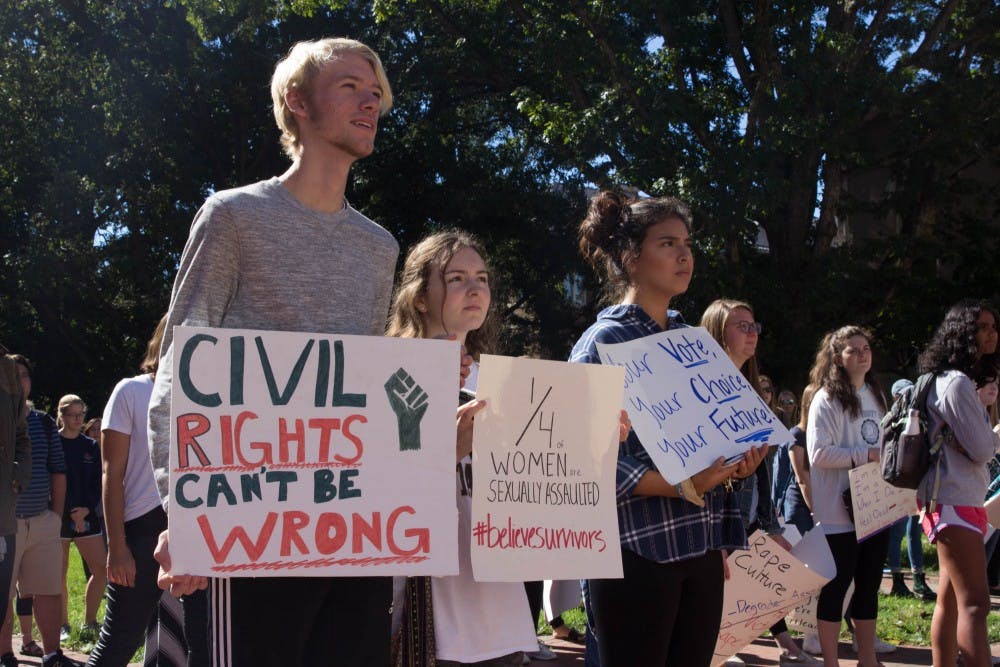Social media has been increasingly used to promote awareness of social justice issues. Most recently, Instagram has become a prominent space to promote sexual harassment and assault awareness (SAA). The #metoo hashtag on Instagram alone has amassed over 2.8 million posts, not including posts made on stories.
This massive amount of posts has resulted in outspoken support for the SAA movement. However, negative commentary from critics has emerged as well, along with a more discrete, yet salient, problem: male apathy.
During an insurgence of SAA posts by women online, the failure of men to regard this online climate feels tone-deaf and oblivious. The dichotomous quality of posts speaks to a lack of accountability and indifference.
91 percent of victims of sexual assault are female. 90 percent of sexual violence against women is by men, and 93 percent of sexual violence against men is by men.
The burden of addressing sexual violence should not be put on women when men perpetuate 78 percent of reported sexual assaults. And, when women speak on this issue, men should be the first in line to listen — not scroll past it.
Among college students, sexual assault statistics are particularly alarming. Women in college are three times more likely to be the victims of sexual violence. Sexual violence is more prevalent in college environments as compared to other crimes, and college-aged victims are less likely to report assaults to law enforcement.
A common response to the promotion of sexual violence awareness for women is the argument that men experience sexual assault and harassment as well. However, highlighting female sexual assault and oppression shouldn’t — and doesn’t — minimize male sexual assault. When men evade systemic accountability for sexual assault by using this excuse, they unrightfully place the responsibility of resolving the issue on women and sexual assault victims.
Another evasive tactic in response to SAA posts is the idea that “not all men” are perpetrators. This ideology enables rape culture, and is another way of undermining the fight for female liberation. Not committing acts of sexual violence is the bare minimum — it’s not something to be congratulated for. By turning a conversation about female oppression into a defense of men invalidates the statistical data pertaining to sexual assault. In turn, this invalidates women’s experiences and the experiences of sexual assault victims.
Maintaining intersectionality when examining social justice movements is crucial, and the SAA movement is no different.



